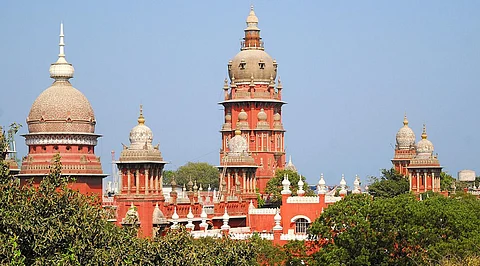

CHENNAI: In a significant judgment, a division bench of the Madras High Court has held that extra-judicial confessions without substantive evidence and cogent circumstances cannot be relied upon for convicting a person.The bench of Justices Paresh Upadhyay and AD Jagadish Chandira delivered the judgment in an appeal filed against life sentence awarded by the Cuddalore district court to a man for allegedly murdering his friend.
The prosecution had relied upon extra-judicial confession given by the convict before a village administrative officer (VAO) for furthering its case without substantiating it with evidence.
The bench said, "The law has been consistently held by the Apex Court and various High Courts that extra-judicial confession allegedly made by an accused loses its significance in the absence of any substantive evidence against the accused and there cannot be any conviction based on such confession."
The extra-judicial confession, however, would attain greater credibility and evidentiary value only if it is supported by a chain of cogent circumstances and is further corroborated by other prosecution evidence, the bench said.
An accused "must be" and not merely "may be" guilty before a court and the conclusions of guilt arrived at must be sure conclusions and not based on 'vague conjectures', the bench said.Justice Jagadish Chandira, who wrote the judgment, said, "To be precise, we are of the view that the prosecution has come up with a tailor-made case against the appellant without taking any steps to wipe out the reasonable doubts and other hypotheses that arise in the case leaving Hobson's choice to the trial court...".
The appellant, Dinesh, was convicted for murdering his friend Sathishkumaran and was sentenced to life imprisonment. The prosecution's case was that he killed his friend after he refused to have sex with him and buried the body behind the compound of his house. Later, he appeared before a VAO and confessed to have committed the offence.
The bench found the prosecution failing in many angles including omission in investigating the suspicion raised by the deceased's parents that he was in love with a girl from another caste and the potential threat to his life, confession statement given to the VAO of a far off place and contradictions in substantiating the claims on nature of weapon. Finding the prosecution failing to prove its case beyond reasonable doubts, the bench set aside the conviction order pronounced in 2018.